Jackfruit is the largest fruit in the world, and it has a unique and memorable appearance.
In recent times, this fruit has become more common in the Western world, and it has even grown popular as a so-called “plant-based alternative” to meat.
However, what nutrients does jackfruit provide? And is it good for you?
This article takes an in-depth look at jackfruit.
What Is Jackfruit?
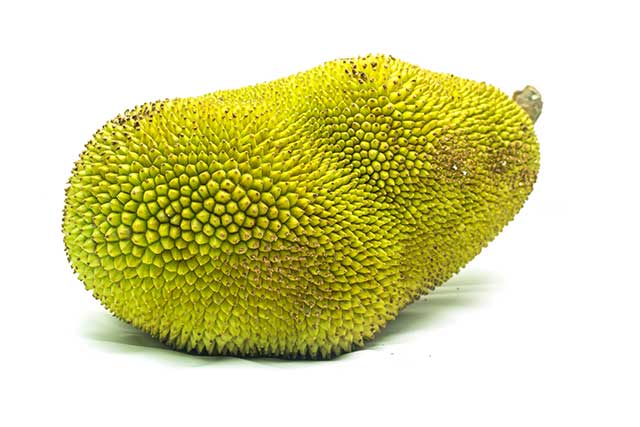
Jackfruit (Artocarpus heterophyllus) is a large tropical fruit that grows in South and South-East Asia, and it is particularly widespread in Bangladesh and Sri Lanka. It is also the national fruit of these two countries.
As shown in the above picture, jackfruit can reach an incredible size, and it is not unusual for one single fruit to reach a weight of 110 lbs (50 kg) (1).
Generally speaking, people can eat the fruit in its raw state or cooked, either alone or as part of a meal.
Due to its stringy and chewy texture when cooked, jackfruit has gained popularity in vegan dishes as a plant-based “alternative” to meat.
In fact, people often compare the texture of cooked (and unripened) jackfruit to pulled pork.
Somewhat amusingly, this may be why one of the nicknames for the fruit is “tree mutton.”
The jackfruit belongs to the same family of trees as fig and mulberry trees.
Appearance
The appearance of jackfruit is notable in more ways than its incredible size.
For one thing, the fruit has a thick green skin covered with large spikes.
It is hard to describe the appearance accurately, but jackfruit looks something like a cross between an overgrown avocado, rambutan fruit, and a spiky green cactus.
That is probably a poor example, but you can see the photo above to judge.
Taste
Similar to other tropical fruits like mango and pineapple, jackfruit has a sweet taste when fully ripe. Regarding its texture, it is somewhere between mango and banana.
However, the taste of green and unripe “young” jackfruit is quite bland, and people describe it as tasting like anything from meat to tubers.
Truth be told, it has a unique flavor, and I don’t think it tastes like other foods.
It is also worth noting that there are two main types of jackfruit; firm and soft.
The firm variety of the fruit is slightly different regarding its texture, and the flesh stays firm and crunchy even when the fruit has fully ripened (2).
Nutrition Facts
Now that we know what jackfruit is let’s take a look at its nutritional values.
The following tables show the full nutritional values for jackfruit per 100-gram (3.5 oz) serving, and data comes from the USDA Food Composition Databases (3).
Calories and Macronutrients
Jackfruit is quite high in calories for a fruit, and it contains very little fat or protein. The fruit is primarily a source of carbohydrate (mainly sugar).
| Calorie/Macronutrient | Amount (kcal/grams) |
|---|---|
| Calories | 94 kcal |
| Carbohydrate | 24.0 g |
| – Fiber | 1.6 g |
| – Sugars (4) | 19.1 g |
| Fat | 0.3 g |
| – Saturated Fat | 0.1 g |
| – Monounsaturated Fat | 0.0 g |
| – Polyunsaturated Fat | 0.1 g |
| – Omega-3 | 24.0 mg |
| – Omega-6 | 63 mg |
| Protein | 1.5 g |
Vitamins
The table below shows the vitamin content of jackfruit, with the most concentrated vitamins listed in descending order.
| Vitamin | Amount | % RDI |
|---|---|---|
| Vitamin C | 6.7 mg | 11 % |
| Vitamin B2 | 0.1 mg | 6 % |
| Vitamin A (carotenoids) | 297 IU | 6 % |
| Vitamin B6 | 0.1 mg | 5 % |
| Folate | 14.0 mcg | 3 % |
| Vitamin B1 | Trace | 2 % |
| Vitamin B3 | 0.4 mg | 2 % |
Minerals
Here is the full mineral profile for jackfruit.
| Mineral | Amount | % RDI |
|---|---|---|
| Manganese | 0.2 mg | 10 % |
| Magnesium | 37.0 mg | 9 % |
| Copper | 0.2 mg | 9 % |
| Potassium | 303 mg | 9 % |
| Phosphorus | 36.0 mg | 4 % |
| Calcium | 34.0 mg | 3 % |
| Iron | 0.6 mg | 3 % |
| Zinc | 0.4 mg | 3 % |
| Selenium | 0.6 mg | 1 % |
| Sodium | 3.0 mg | 0 % |
Health Benefits
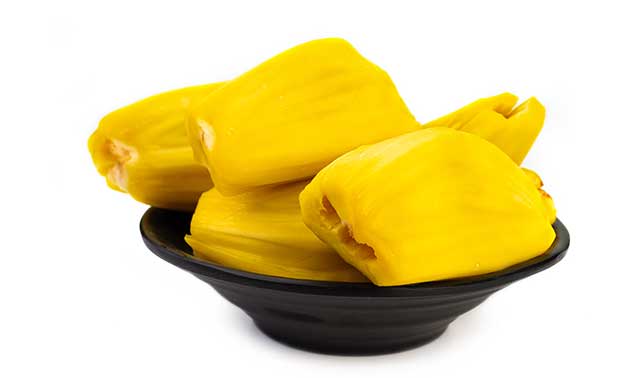
It is easy to hear claims that jackfruit is a “superfood” or “nutrient powerhouse,” but as shown in the nutrition profile, this is stretching the truth.
Here’s a look at some actual health benefits that jackfruit may provide.
1) A Good Source of Magnesium and Potassium
Jackfruit contains a moderate amount of the essential minerals magnesium and potassium, both of which can be hard to find in food.
A cup serving (165 g) of jackfruit offers 15 % of the reference daily intake (RDI) for magnesium and 15 % for potassium (2).
Both of these nutrients are electrolyte minerals, and higher intakes of magnesium and potassium are associated with lower risk of cardiovascular events (5).
Additionally, randomized controlled trials show that increasing potassium and magnesium intake can significantly lower blood pressure (6, 7, 8, 9).
Magnesium also plays a vital role in energy and DNA production, and it is a co-factor for numerous enzyme systems.
These enzyme systems regulate numerous biological systems in the body, including blood glucose control and protein synthesis (10).
2) Source of Vitamin C
The most concentrated nutrient that jackfruit contains is vitamin C, otherwise known as ascorbic acid.
Per cup (165-gram) serving, jackfruit offers 11.1 mg of the vitamin, which is equivalent to 18% of the RDI (2).
Vitamin C has numerous functions within the body, and it has antioxidant properties through which it may be able to reduce oxidative stress (11, 12).
Additionally, the human body requires vitamin C for the synthesis of a wide range of important compounds such as collagen and carnitine (13).
3) Contains Polyphenols
Jackfruit contains several classes of polyphenols, sometimes referred to as phytonutrients.
Among the phenolic compounds that jackfruit contains, it is particularly high in (14);
- Lignans
- Flavonoids
- Isoflavones
- Saponins
These compounds have received a lot of attention for their potential health-protective properties, but there are still very few studies in human participants at this time.
Some controlled studies on flavonoids (using flavonoid-rich foods like cocoa powder and tea) show potential cardiovascular/blood pressure and cognitive benefits (15, 16, 17).
That said, jackfruit is much less concentrated in these compounds than cocoa or tea, and there have been no controlled studies on jackfruit polyphenols.
Unfortunately, there are a lot of claims online about jackfruit having “cancer preventive” or “anti-aging” benefits. These come from the fact that high-strength concentrated extracts of phenolic compounds have shown promise in cell/test tube studies.
There is no evidence at all for these kinds of benefits simply from eating jackfruit, and such exaggerated claims require a large pinch of salt.
4) Jackfruit Contains Carotenoids
Jackfruit contains a moderate amount of carotenoid compounds such as lutein and zeaxanthin (18).
Meta-analyses of controlled clinical trials demonstrate that these two carotenoids may help to (19, 20);
- Protect against macular degeneration.
- Reduce the symptoms of macular degeneration in current patients.
- Improve overall visual performance.
5) Jackfruit Provides a Small Amount of Fiber
Per cup (165-gram) serving, jackfruit offers a small 2.6 grams of fiber (2).
Fiber (and the cellular structure of fruit) are thought to slow down the release of sugar in fruit, as our body has more work to do before the fruit’s sugar releases into the bloodstream.
This cellular structure is one reason why whole food carbohydrates (e.g., tubers and fruit) are healthier than refined grain products and added sugars (21).
However, the fiber to carbohydrate ratio in jackfruit is not particularly impressive, and the fruit has a carbohydrate:fiber ratio of 15:1 (3).
By comparison, fruits such as raspberries have a 2:1 ratio of carbohydrate to fiber (22).
Potential Downsides
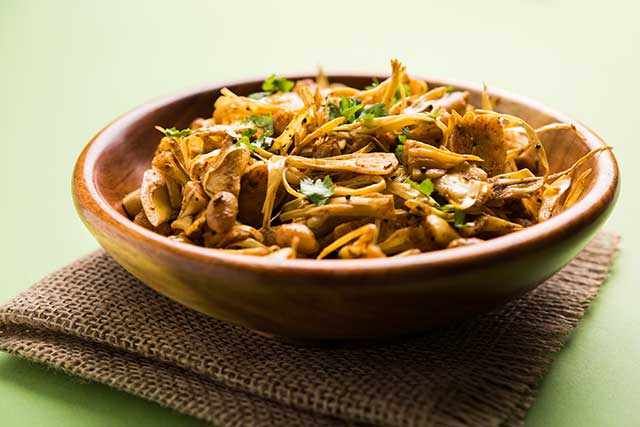
While jackfruit does have a few benefits, it also has some side effects and potential drawbacks.
Here is an overview of these issues.
1) Birch Pollen “Jackfruit” Allergy
There appears to be some cross-reactivity between birch pollen and jackfruit regarding allergic reactions.
Several case studies have shown that individuals with birch pollen allergy experienced allergic reactions upon consuming jackfruit (23, 24).
In some cases, this has even led to anaphylactic shock, which refers to a severe allergic reaction (25). Anaphylaxis is a medical emergency which can sometimes be fatal.
Anyone with concerns about potential allergies should avoid eating jackfruit or at least discuss with their physician before consuming it.
2) High In Carbs and Calories
While being high in carbohydrate/calories isn’t necessarily a bad thing; it is worth noting that jackfruit contains around 40 grams of carbs (and 155 calories) per standard cup serving.
These amounts are much higher than the majority of fruits, and this also makes jackfruit a non-optimal choice for individuals following a diet low in dietary carbohydrate.
Of course, anyone trying to restrict calories or carbohydrate can still eat jackfruit if they want.
However, be aware that jackfruit is quite a carbohydrate (and calorie) dense food.
3) Jackfruit Is Not a Good “Meat Replacement”
As previously mentioned, jackfruit has become a stylish plant-based alternative to meat in vegan meals, and you can see it taking the place of meat in various recipes.
For unripe (and cooked) jackfruit, the texture of the fruit is quite close to the mouthfeel of meat.
However, nutritionally things are an entirely different matter.
While jackfruit does contain small amounts of B vitamins, it has zero B12 and meager amounts of iron and zinc. The fruit also contains minimal amounts of protein.
In other words; it really shouldn’t be viewed as a substitute for meat-based dishes.
Canned Jackfruit vs. Fresh
Firstly, it is possible to buy fresh jackfruit if you look around for it (and it is also available online).
However, it can be difficult to buy the fruit fresh just because of its size (and associated expense).
In addition to fresh options, canned jackfruit is also widely available.
Commercial canned jackfruit options usually come in brine (salt water) or syrup; since it doesn’t contain added sugars, the brine option is the healthier choice.
Also, the canned products contain “young” jackfruit, which is a term that refers to the fruit still being unripe. This is the form of the fruit that people use for cooking purposes.
Where To Buy Jackfruit
Finding jackfruit depends on the type you are looking for.
For example, it can be quite challenging to find the fruit in its fresh form given how much it weights.
Fresh Jackfruit
Most regular grocery stores and supermarkets won’t sell jackfruit in their fresh form.
However, you may have luck if you try some local Asian grocery stores (particularly those that stock predominantly South or South East Asian groceries).
You can also find fresh jackfruit for delivery online, and even some Amazon sellers stock some “small” (as in 15-18 lb) fruits.
Canned and Frozen Jackfruit
You should be able to find canned and frozen jackfruit products in any reasonably large grocery store/supermarket.
Typically, the canned products contain “young” (unripe) jackfruit, which is the kind used for cooking purposes.
On the other hand, frozen bags of jackfruit pieces use, more often than not, ripe fruit.
Other Products
There are also a wide variety of jackfruit products available, such as dried jackfruit and jackfruit chips.
Since these are dehydrated products without the water weight of fresh fruit, they are extremely high in calories and carbohydrate/sugar.
Final Thoughts
Jackfruit is an interesting and unique fruit, and it is worth trying just for the experience.
However, nutritionally, the benefits of the fruit are exaggerated.
The fruit does offer moderate amounts of vitamin C, magnesium, and potassium, but it isn’t the superfood the hype makes out.
For more on tropical fruit, see this guide to starfruit or this in-depth guide to longan fruit.


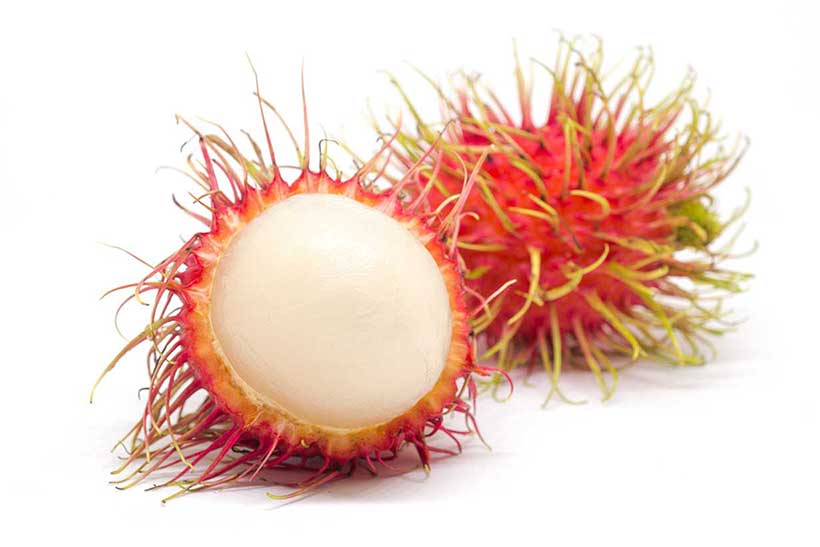
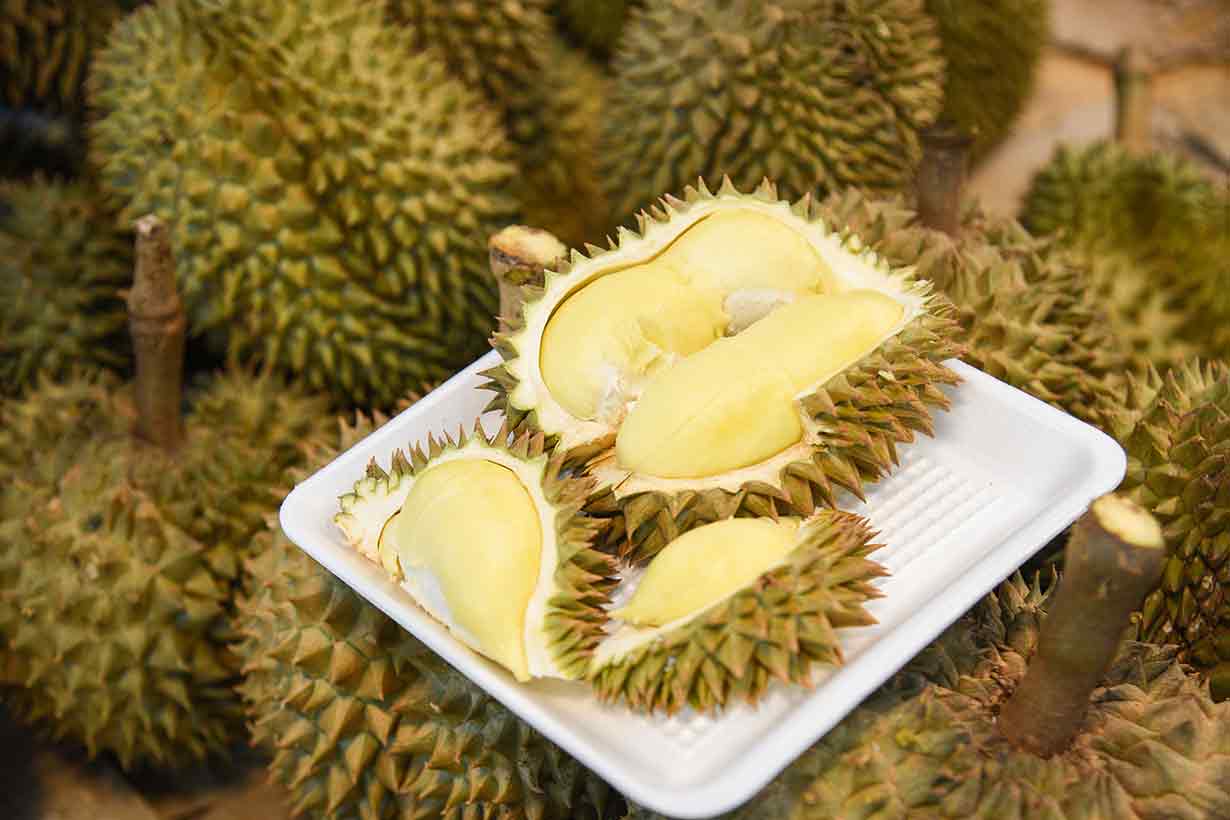
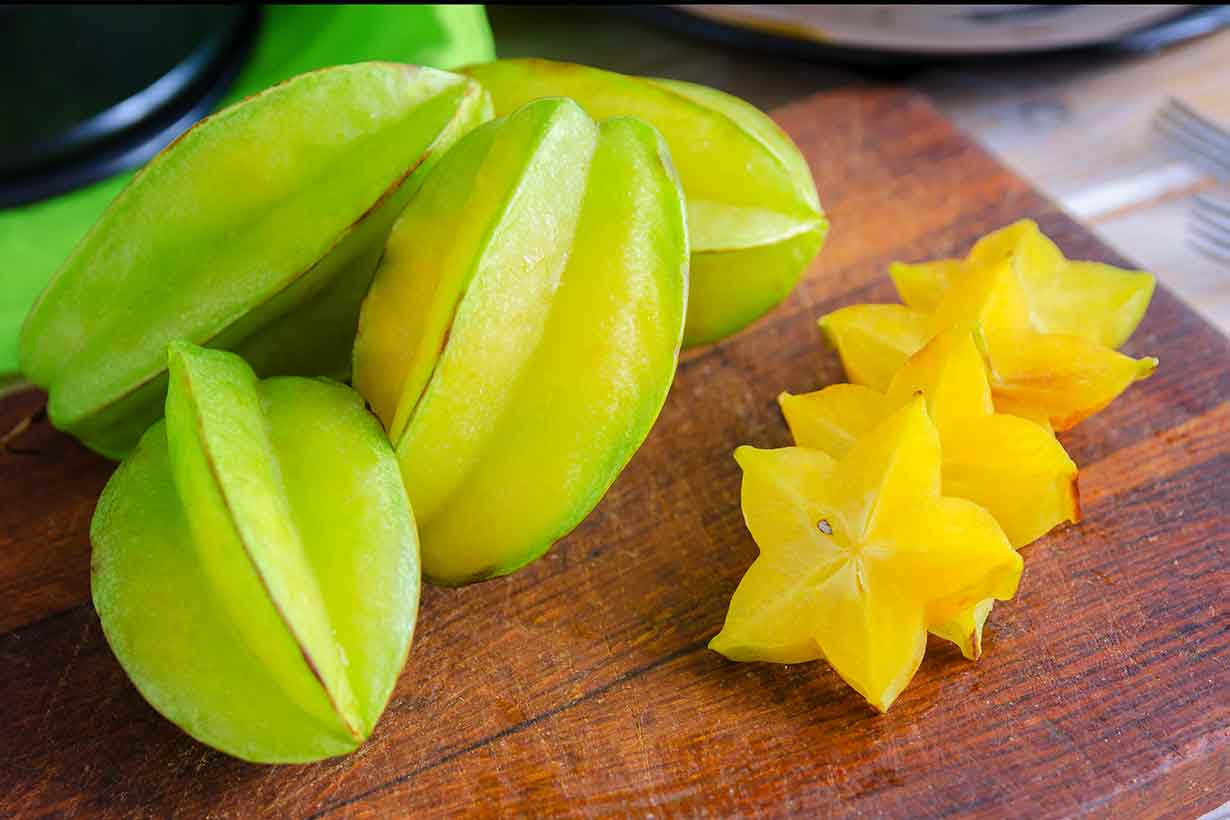

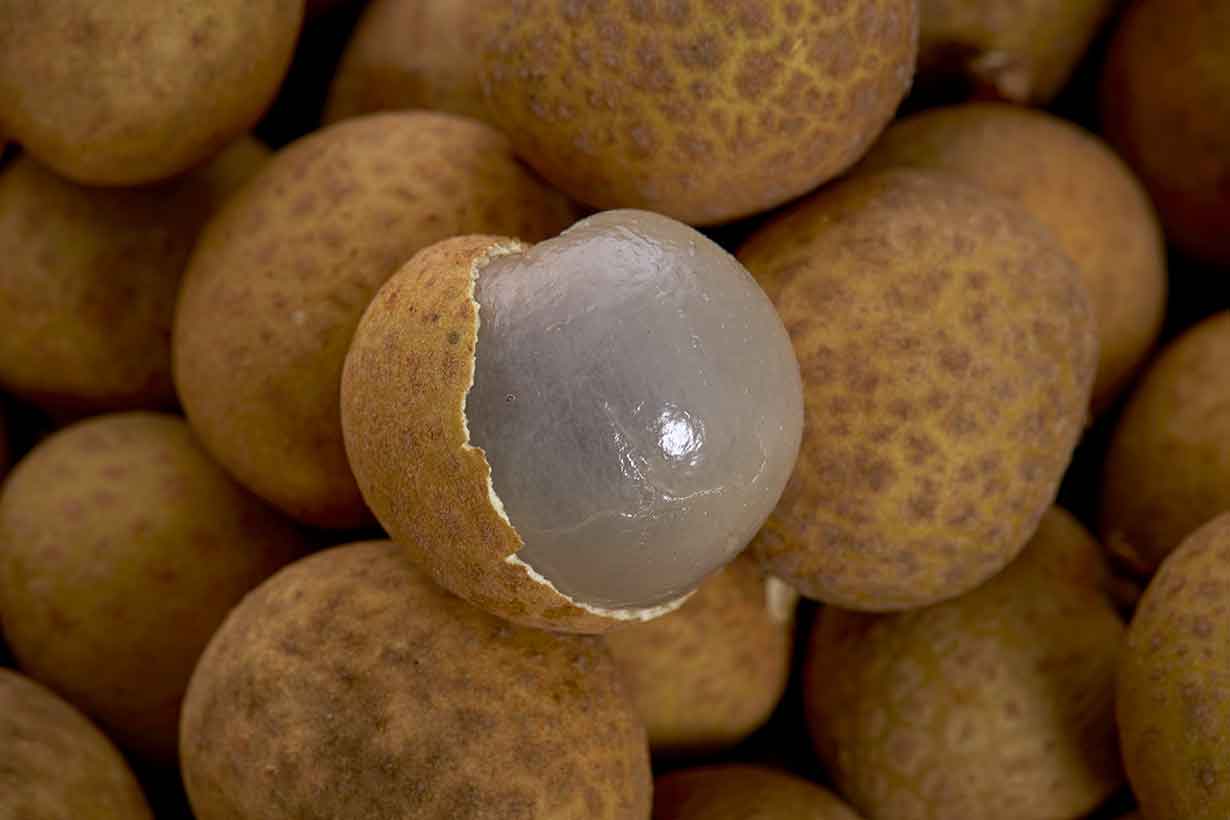
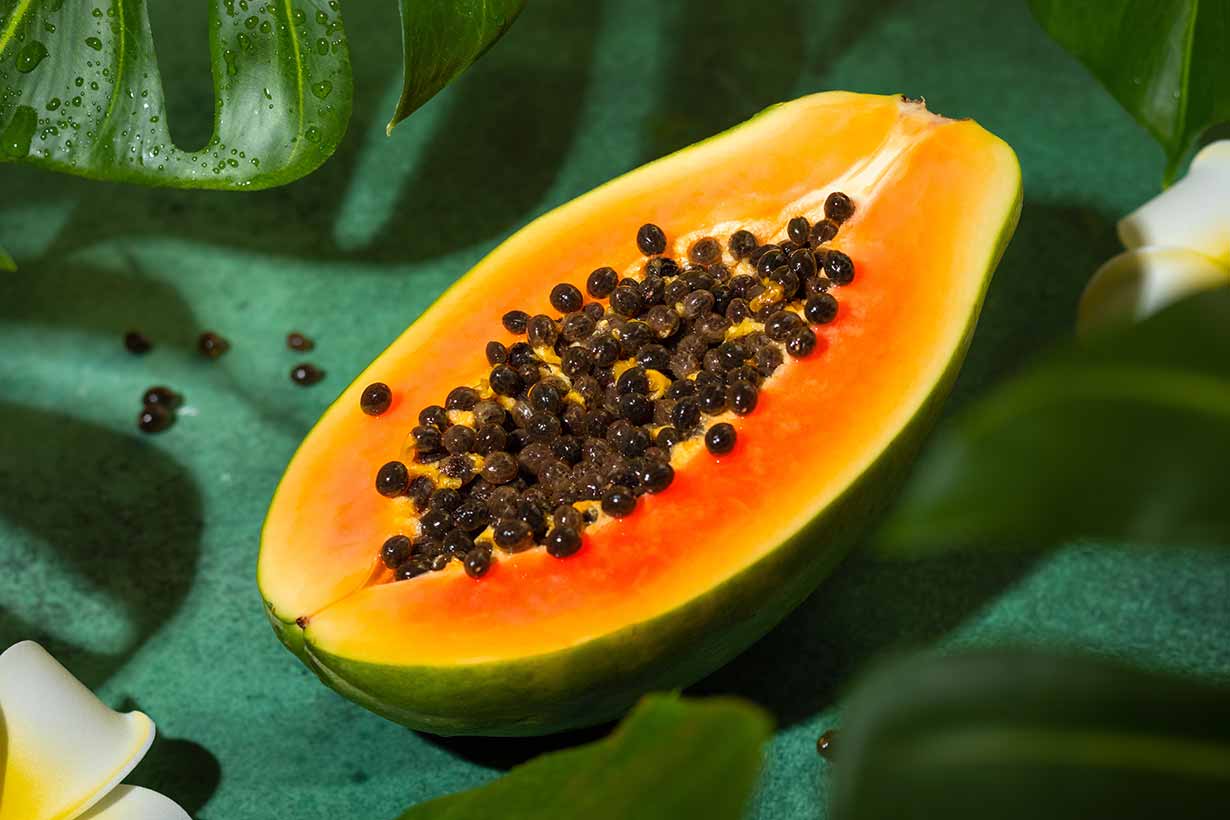
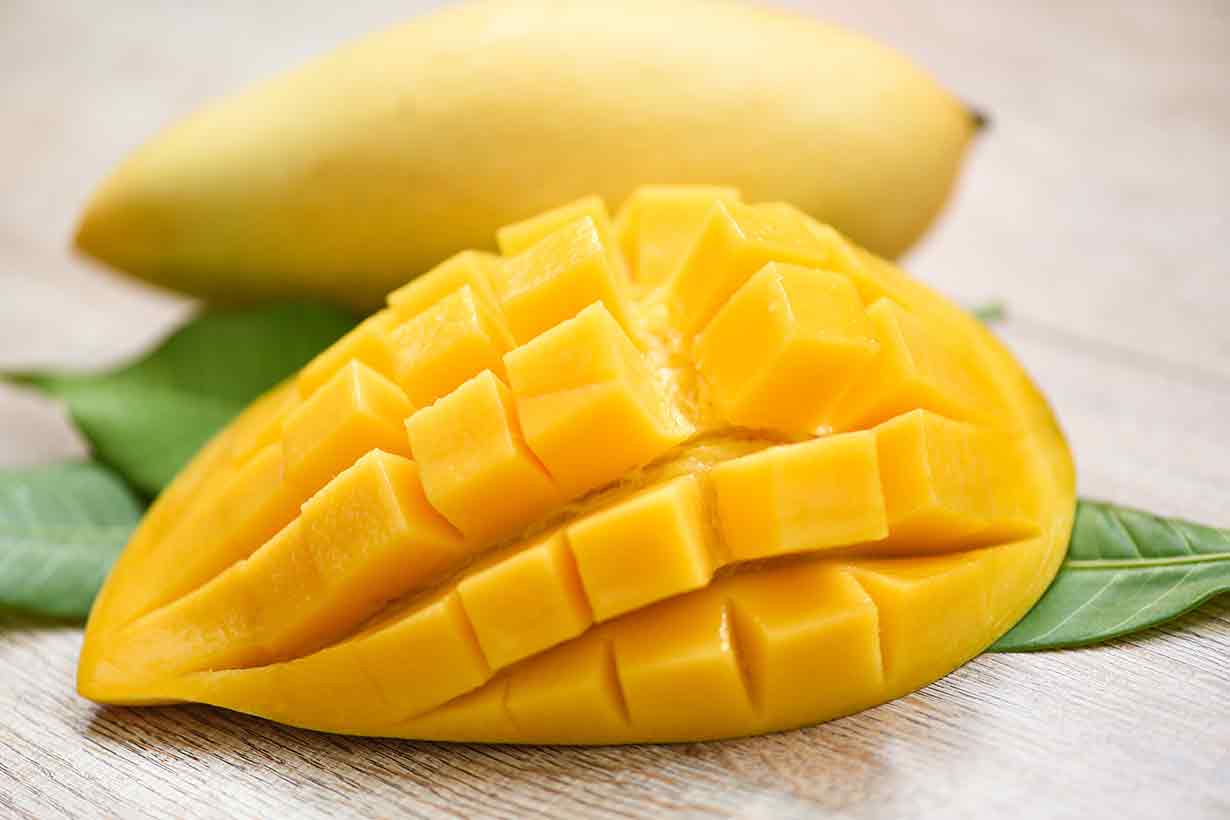
I know for a fact you can find fresh Jackfruit at a store called CARDENAS located in the city of Coachella. I live in California in the Coachella Valley and we have a few of these stores. These stores are all over Southern California but I am only sure of the one in my city that they have it.
Interesting – thanks for pointing that out! It’s quite hard to find them in their fresh state.